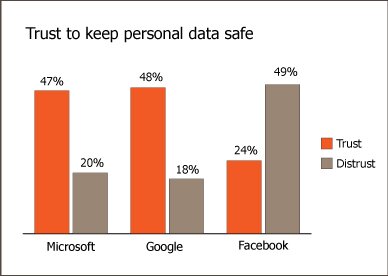Consumers are now using various connected devices to socialize, communicate and access a plethora of content and services. Smartphones have accelerated this trend and allow consumers to manage more of their personal and work lives without being restricted by location or time. Cloud based services are the next step in liberating consumers’ most loved content and service as the device is removed as a barrier to access. Network infrastructure is central to this shift to the cloud. 4G networks are the catalyst needed and security the hurdle to overcome. However, with learnings from the enterprise sector, security is not only an obstacle but can also serve as a driver for adoption.
Posts Tagged ‘Privacy’
Choose your friends carefully: the move to Social Network Curation in 2011
January 14, 2011 11:17 by Richard PreedyOur online social networks are a key source of information and increasingly influence what we read, share and buy. However, if we do not filter out the mundane we risk missing the information that is most important to us and becoming a victim of information overload.
It occurred to me the other day that I have too many friends. By this, I don’t mean the family, friends and colleagues I socialise with throughout the week and, you know, actually spend my leisure time with face to face. More, the numerous people sitting on my Facebook account I haven’t spoken to for nigh-on five years, (the occasional shallow digital platitude aside), but who seem intent on breathlessly updating their minute movements on the notice board whenever I (increasingly infrequently) log-in. Back in 2006 when the Facebook really took off, there was something ego-boostingly satisfying about racing to my first 100 friends, but now I find it a little tiring. Do I really need them all?
Privacy in a Connected Society
August 17, 2010 10:00 by Laura FryThe recent actions of the world’s biggest social network reveal its beliefs and ideals for digital society; openness and one identity. However, theories suggest that self identity is process of story-telling under constant revision. With our research showing that social networkers are actively sharing different amounts of personal information across different networks, the future of digital society lies in giving users more control over their personal and private identities online.

In April 2010, the actions of the world’s most used social networking site struck several chords of concern in our digital society. In changing default privacy settings for users, Facebook placed privacy as central to the internet paradigm. Discussion, debate and protest from social networkers, internet users, reporters, commentators and the 1,400 people based at the corporation’s HQ in California were focussed on notions of privacy.
A recent UK study finds consumers have less faith in Facebook than either Microsoft or Google to keep their personal information private
Social networking sites typically involve disclosing often very personal information to your circle of friends and to this end, it is important to have faith that the social networking brand will respect the privacy of this information. Recent research by GfK Technology indicates, however, that Facebook has lower levels of trust in keeping personal information private than either Microsoft or Google. Given the remarkably high levels of usage of Facebook this is clearly a concern for the brand owners.
This illustrates the dilemma facing organisations such as Facebook – whilst consumer behaviour or personal information can be key to creating new services that are enjoyed by users, there is often a sense of unease about data being used in this way. Furthermore, as is likely the case with Facebook, the illicit activity of unscrupulous users of the service (such as those posing as friends in order to conduct fraud of some description) has a knock-on effect for the brand.



